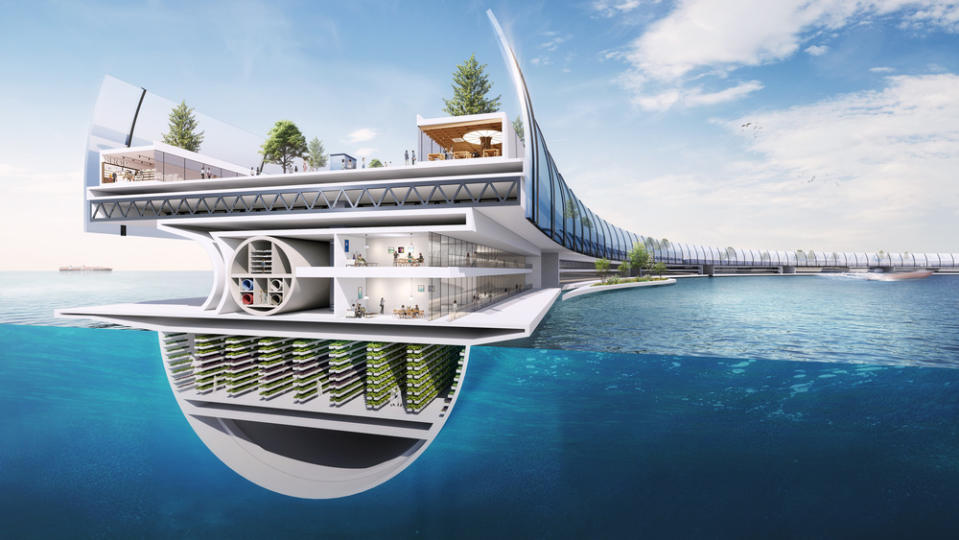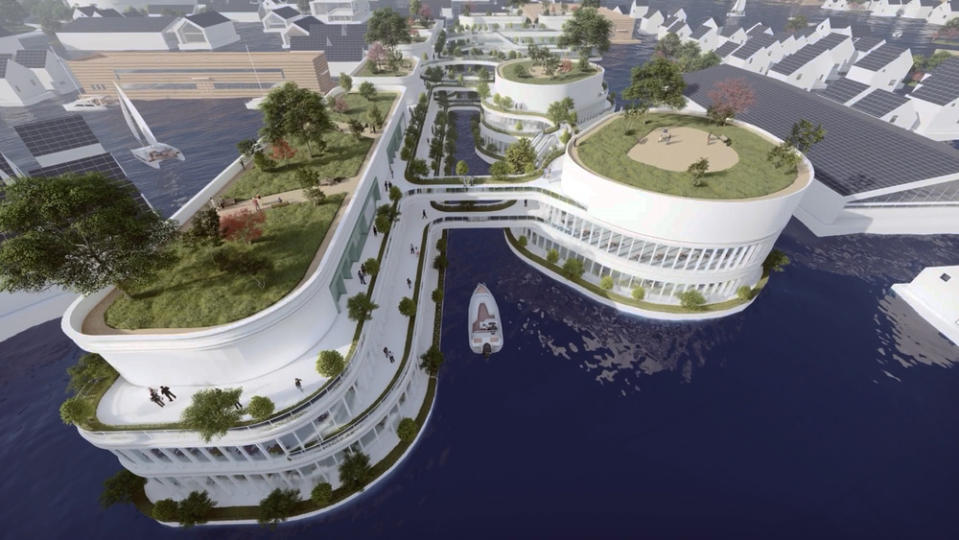A Japanese Start-Up Is Building a Bonkers Floating City Designed to Adapt to Climate Change

Sustainability isn’t the only focus of N-Ark’s groundbreaking floating city concept.
The Japan-based maritime start-up has revealed plans for what it’s calling Dogen City, a floating metropolis that will not only adapt to climate change but also provide cutting-edge health care services and disease prevention to its inhabitants. Measuring 390 acres, the “no-illness” neighborhood will house 40,000 people at one time, including 10,000 residents and 30,000 visitors or tourists. The circular structure would be able to withstand natural disasters and contain public housing, medical research centers, food production facilities, and even launch sites for spacecrafts.
More from Robb Report
Michael B. Jordan Wears a Tomato Red Shawl Suit in for His Latest 'Creed' Premiere in Japan
Thieves Steal Over 100 Luxury Watches From a Boutique in Japan

“To sustain maritime business and solve problems, policy, business and technology strategies must come together to create a new maritime economy,” N-Ark writes on their website. Dogen City’s design will consist of three layers or what the company has dubbed “industries,” each with its own purpose. First, there’s a habitable, self-sustaining maritime village that will provide living infrastructure and promote mental and physical self-care. The ring shape also protects it from the threat of a tsunami. Then, an undersea data center that’s naturally cooled by the ocean, reducing energy consumption. Finally, the last layer will take cues from SpaceX and act as a launch and landing site for rockets.

Living in Dogen City means residents can partake in daily telemed consultations that use sensors, blood samples, and genome analysis to evaluate their health. In addition, they’ll also have access to advanced robotic surgery and drug research. In terms of food, functional ingredients and crops will be grown on-site using innovative cultivation technology that relies on seawater as a source of nutrient for plants. The project will produce nearly 7,000 tons of food annually and generate 22,265,000 kW of power. “The concept is medicine, food, and housing are the same source,” adds N-Ark.
Currently, there’s no word on where exactly Dogen City will be located or a timeline for completion.
Best of Robb Report
Sign up for Robb Report's Newsletter. For the latest news, follow us on Facebook, Twitter, and Instagram.

